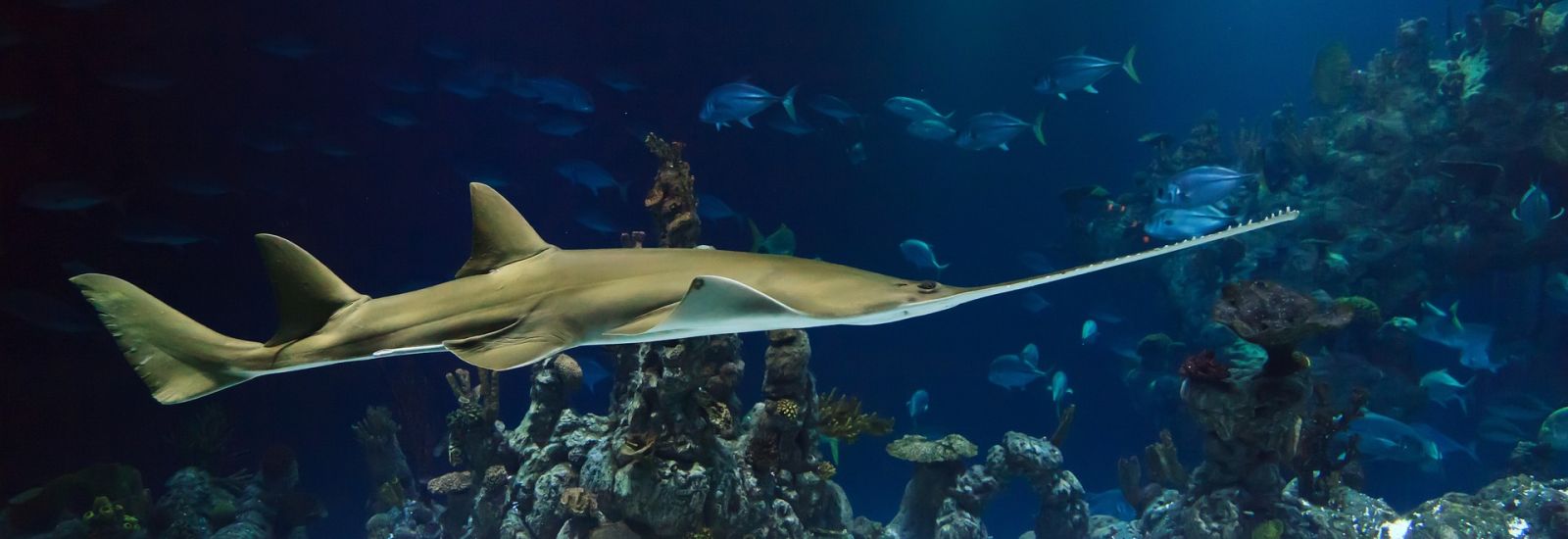
Enhancing marine conservation and fisheries policy in Indonesia
Our oceans are a vital source of food and income. How do we protect the marine eco-system, and the livelihoods of the people who depend on them?
Direct use of ocean resources supports the well-being of billions. But overfishing means that marine animals, such as sharks, are amongst the world's most threatened species – compromising ecosystems and marine life, as well as jobs and local food supplies.
The UN Sustainable Development Goals (SDGs), and international policy agreements such as the Convention on International Trade of Endangered Species (CITES), set out frameworks for sustainably managing the ocean. The challenge, however, is balancing sustainability with food and livelihood security for the millions of women and men who depend on ‘the blue economy’.
In Indonesia, small-scale fisheries (SSFs) vital to the livelihoods of many households and communities, often catch critically endangered species. Previous research from the Department of Biology (formerly the Department of Zoology) has highlighted the potential for incentive-based mechanisms (such as income generating activities or incentives and rewards to protect certain species) to help protect marine life – particularly sharks and rays. An OPEN Fellowship supported the development of policy engagement process around these approaches from Jan to April 2021.
Working with the Indonesian Ministry of Marine Affairs and Fisheries, the Panglima La'ôt of Aceh, and the UK Centre for Environment Fisheries and Aquaculture, we developed materials to support changes to policy and practice – including infographics, briefings, websites in English and Bahasa, and presentations to government officials and fisher communities.
This stakeholder engagement has led to tangible local-level actions to compensate fishers for releasing critically endangered species, already with promising results; and provincial and national policy instruments to address the socio-economic drivers of overfishing have been developed and shared with policymakers.
We’re optimistic that in the longer term, these initiatives will lead to legislative and policy changes. The Indonesian Minister of Fisheries and Marine Affairs has shown a strong interest in trialling incentive-based approaches for marine conservation, and continued collaboration with UK government agencies will hopefully fund and support adoption of the recommendations. The project also led to an approach by the United Nations Food and Agriculture Organization to prepare international guidance documents for fishery managers, and the launch of the first ever randomised control trial on mitigating the accidental catch of protected species in small-scale fishing – both of which could lead to sustainable changes to fishing practices.
But creating tangible policy change through research takes time. It’s important to be realistic about what you can achieve yourself, and to try to develop long-term partnerships and relationships with stakeholders who can take the work forward. Look out for unexpected policy opportunities – when an invitation to contribute to something or a shift in external events make change possible. And keep going! It’s important that our research makes a different to people whose lives it affects and it worth investing in policy engagement to achieve this.
Hollie Booth is a postdoctoral researcher in the University of Oxford’s Department of Biology and a Research Fellow at the Interdisciplinary Centre for Conservation Science.